Elon Musk has just landed a major government contract worth $5,900,000,000, allowing his aerospace company SpaceX to launch military satellites into space over the next four years.
SpaceX continues to grow its position in the space industry after becoming the most valuable private entity in the world, having already worked with NASA and the US government on a number of key projects.
Musk‘s company played a key role in returning ‘stranded’ astronauts Suni Williams and Butch Wilmore back to Earth, as NASA awarded SpaceX the contract following technical issues with their original Boeing spacecraft.
SpaceX has also been tasked with decommissioning the International Space Station in the next decade, which Musk himself has tried to expedite to a much earlier date despite the protestations of key astronauts.
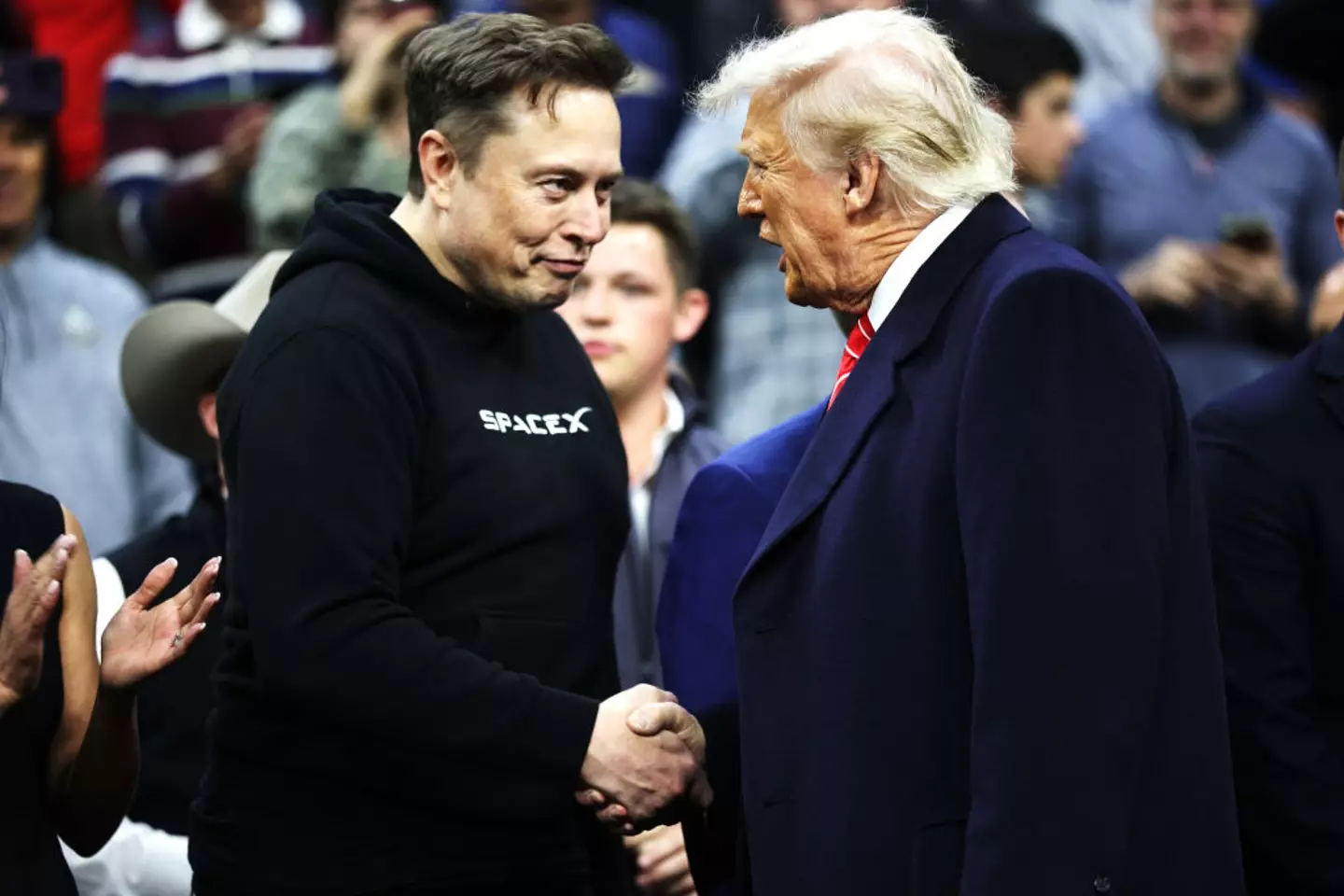

Musk’s SpaceX has received a major contract from the government to launch military satellites into space (Kayla Bartkowski/Getty Images)
The growing influence of private companies in the aerospace world continues to expand as efforts to explore and mine the Moon ramp up, and two of its major players have just got another significant boost from the government.
As reported by NewsX, SpaceX was recently awarded a mega $5.9 billion contract by the US government to launch military satellites into space, alongside Lockheed Martin & Boeing’s United Launch Services ($5.4 billion) and Jeff Bezos‘ Blue Origin ($2.4 billion).
Among the three companies it is planned that 54 satellite launches will take place before 2029, with Musk’s company taking on 28, or over half, of the operations.
“The result is assured access to space for our national security missions,” reads the statement from the US Space Force following the contract agreement, “which increases the military’s readiness.”
Many consider this to only further increase the influence of private companies on US space operations, which perhaps paints a picture of what the future holds for exploration across our solar system.
Additionally, some have also called into question Musk’s current role in government as head of the Department of Government Efficiency as a conflict of interest when it comes to the awarding of contracts.
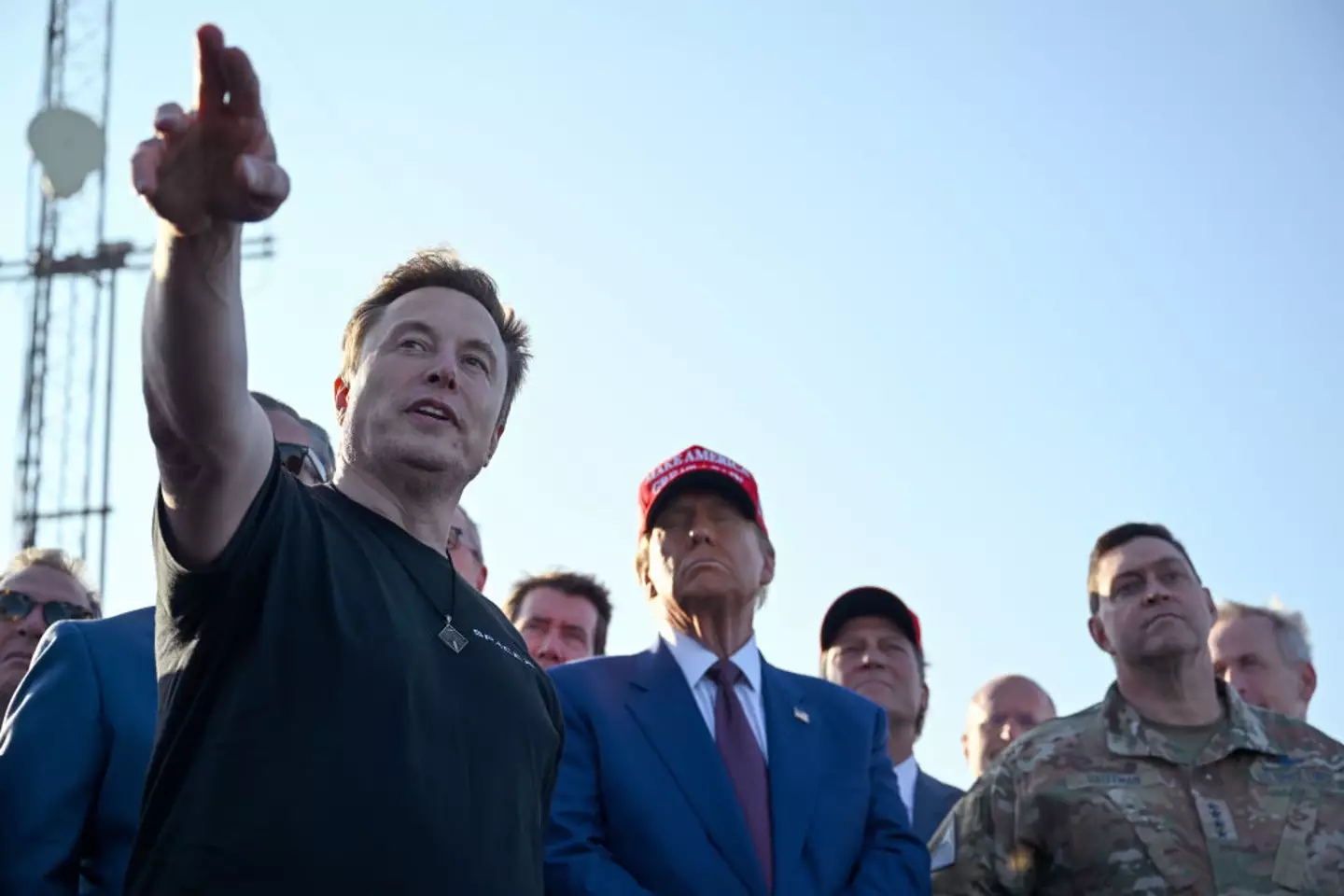

Some have called Musk’s success with government contracts a conflict of interest (Brandon Bell/Getty Images)
While President Trump has argued that Musk receives no financial benefits or advantages as a consequence of his role, it’s not hard to imagine why some remain skeptical that his position of power can influence decisions made within government – even if he is set to leave his role shortly.
This isn’t the first time that one of Musk’s companies has massively benefitted from a government contract since taking a position in Trump’s administration, as SpaceX subsidiary Starlink was recently awarded a $2.4 billion air traffic control contract that was intended to go to Verizon instead.
Featured Image Credit: Brandon Bell via Getty Images


Amazon is set to launch a $20 billion competitor called ‘Project Kuiper’ into space to rival Elon Musk’s Starlink with the first potential launch just days away.
The first batch of satellites are expected to launch into space as early as next week as Amazon attempts to give Musk a run for his money.
The firm has obtained 80 launch missions that will send the Project Kuiper internet satellites into orbit.
The hope is that the missions will result in the creation of a constellation that can compete with Starlink.
Amazon has even said that it has plans to start offering high speed internet to customers ‘later this year’.
While internet from Amazon will eventually be accessible from pretty much ‘any location on the planet’, customers will require a terminal antenna in order to connect.


Amazon hope to create a satellite constellation to rival Starlink (Alan Dyer/Stocktrek Images)
Back in 2023, Amazon said that its smallest design for a dish was a seven inch square which is the ‘most affordable customer terminal’.
Weighing just 1lb and offering speeds up to 100Mbps, the dish is portable for customers to move around with them.
In a statement at the time, Amazon said: “Project Kuiper is Amazon’s low Earth orbit (LEO) satellite network. Its mission is to bridge the digital divide by providing fast, affordable broadband to communities unserved or underserved by traditional communications technologies.”
Amazon also plans to offer larger dishes to provide internet coverage in residential as well as enterprise locations.
These will have speeds up to 1Gbps, and Amazon estimates it will be able to produce these dishes for ‘less than $400 each’.


Amazon hope to eventually offer global internet coverage (Amazon)
Rajeev Badyal, who is the vice president of Project Kuiper, said: “We’ve done extensive testing on the ground to prepare for this first mission, but there are some things you can only learn in flight, and this will be the first time we’ve flown our final satellite design and the first time we’ve deployed so many satellites at once.
“No matter how the mission unfolds, this is just the start of our journey, and we have all the pieces in place to learn and adapt as we prepare to launch again and again over the coming years.”
The company hopes to compete with the likes of Starlink.
Owned by SpaceX, the telecommunications provider began launching Starlink satellites in 2019.
As of last year, the constellation now consists of over 7,000 small satellites that are in low Earth orbit.
The firm currently offers internet coverage to over 100 countries and territories around the world.
Featured Image Credit: MARK GARLICK/SCIENCE PHOTO LIBRARY/Getty Images


While they often cooperate with each other, NASA and SpaceX are undeniably rival entities that are gunning against one another in the modern age space race.
Both space agencies have expressed their desires and plans to reach the moon, and NASA often enlists the aid of SpaceX when it comes to transporting its astronauts to and from the International Space Station (ISS).
Most recently it was a SpaceX Falcon 9 rocket that successfully returned stranded astronauts Suni Williams and Butch Wilmore back to Earth after their Boeing Starliner craft experienced technical issues on board the ISS.
While NASA is likely happy to welcome and outsource the assistance of SpaceX, it becomes incredibly easy to understand why they’re so willing to cooperate with Elon Musk‘s private space empire when you look at the cost each company incurs when launching a rocket.
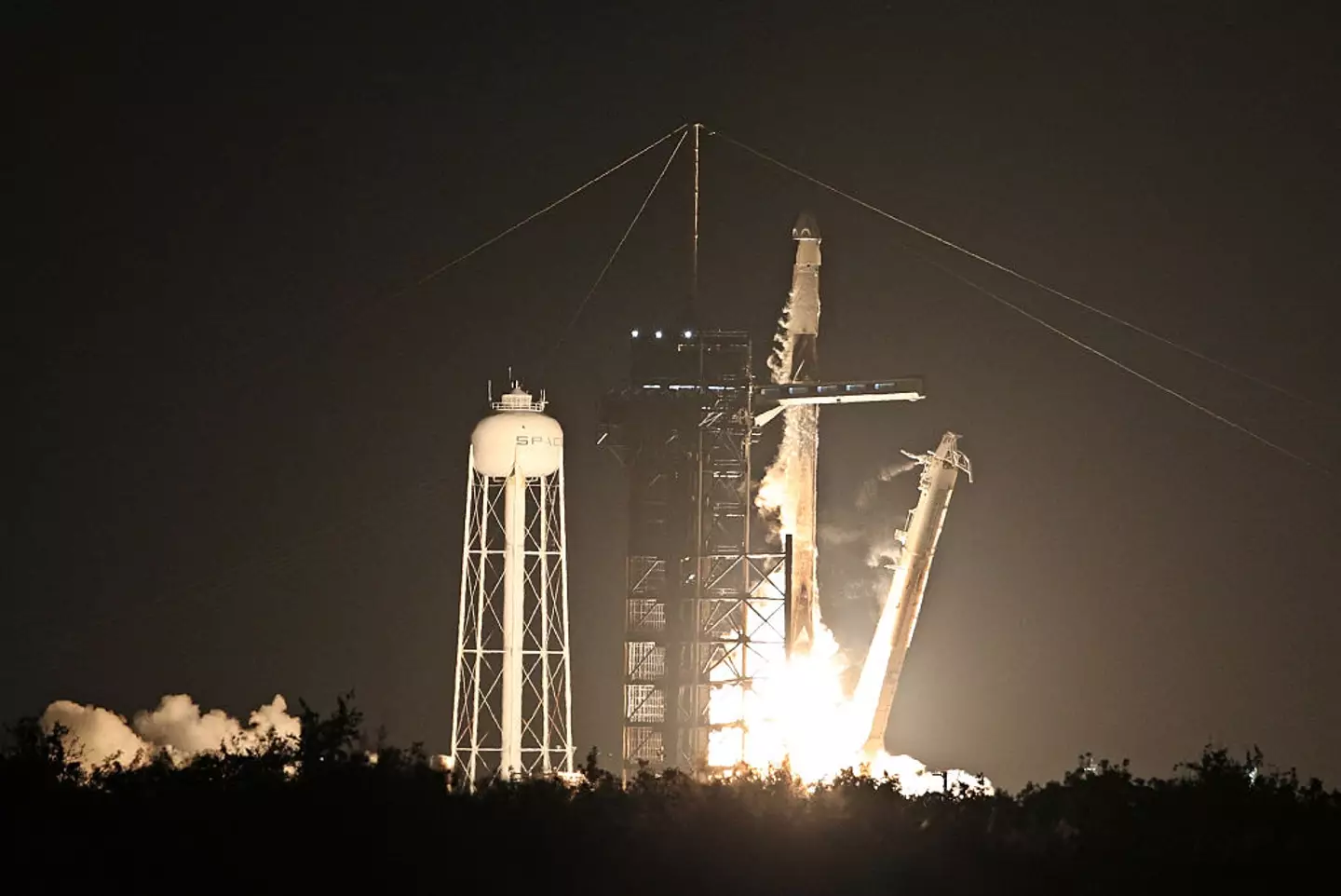

SpaceX’s Falcon 9 launches cost the company ‘just’ $67 million (Gregg Newton/AFP via Getty Images)
As reported by Technowize, SpaceX’s Falcon 9 rocket sets the company back around $67,000,000 every time it launches, increasing by $5,000,000 from the 2022 sum due to inflation.
This might seem like an eye watering amount of money at first glance, but seeing how much NASA spends in comparison will let you soon realize that this is a thrifty effort by Musk and his team.
NASA’s Space Launch System (SLS) reportedly sets the government agency back around $2,000,000,000 every time it’s used, which is just under 30 times more expensive than the SpaceX equivalent and looks even worse when you consider the cost-per-pound of $2,700 (SpaceX) compared to $70,000 (NASA).
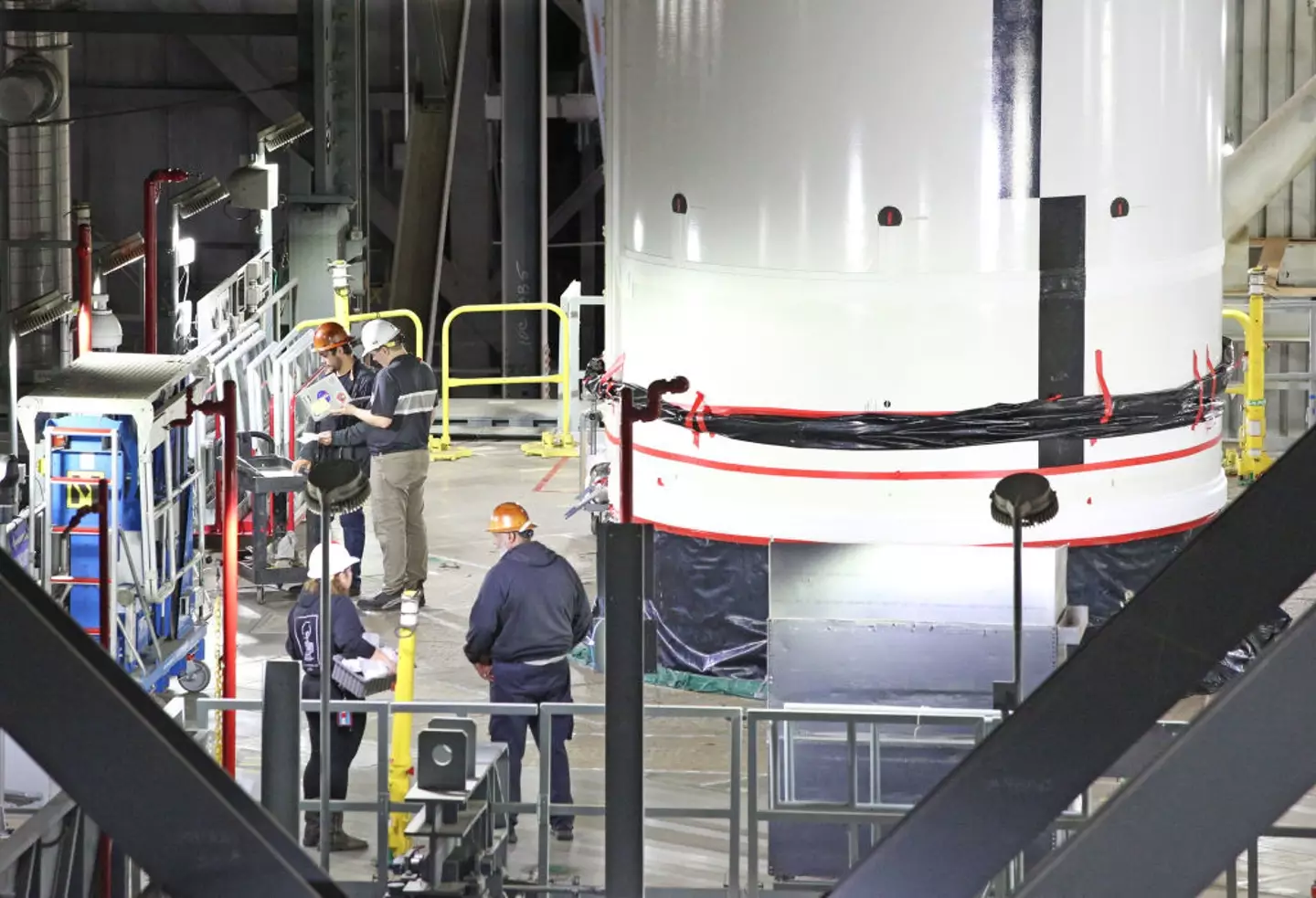

NASA launches are nearly 30x more expensive than their SpaceX equivalents, setting the agency back around $2 billion each time (Gregg Newton/AFP via Getty Images)
One of the biggest reasons why SpaceX is able to reduce their costs so significantly is due to the reusable nature of Falcon 9.
The rocket’s first stage booster has been specifically designed to land vertically, which makes it easy for the team to retrieve it and use it for future flights, significantly cutting down costs down the line.
While Falcon 9 is the current rocket of choice for SpaceX, their Starship project could cut down costs even more while also being their biggest and most powerful output.
The current launch cost of Starship is roughly $100,000,000 – which remains still a fraction of NASA’s efforts – and Musk has claimed that this could drop as low as $10,000,000 in the future. Like Falcon 9, Starship is also reusable – although it has also been prone to explosions in recent launch tests.
You have to imagine that SpaceX’s financially impressive launches are part of the reason why its been able to become the most valuable private company in the world, and it’ll also play a key role in their ability to offer intern salaries that far exceed what NASA can table.
Featured Image Credit: NurPhoto / Contributor / Getty


Donald Trump is reportedly gearing up to dissolve the National Space Council just days after becoming the 47th president of the United States.
If you thought signing a deluge of controversial executive orders, dishing out thousands of pardons, and announcing $50 billion AI programs was a wild to start Donald Trump’s second presidency, that could be nothing compared to what he’s got planned.
America isn’t just leaning into Trump’s ‘drill, baby, drill’ motto, with it hoping to take over the stars. There’s already something of a space war between Elon Musk‘s SpaceX and Jeff Bezos’ Blue Origin, but with Musk firmly in the ear of the returning POTUS, there are concerns he could gain an advantage over the competition.
As shared by Reuters, lobbying from Elon Musk’s SpaceX might’ve seen President Trump axe the White House’s National Space Council.
The body evolved from the National Aeronautics and Space Council (1958-1973) and was founded in 1989 under George H. W. Bush. It was later disbanded in 1993 due to friction with NASA and its functions being absorbed into the National Science and Technology Council.
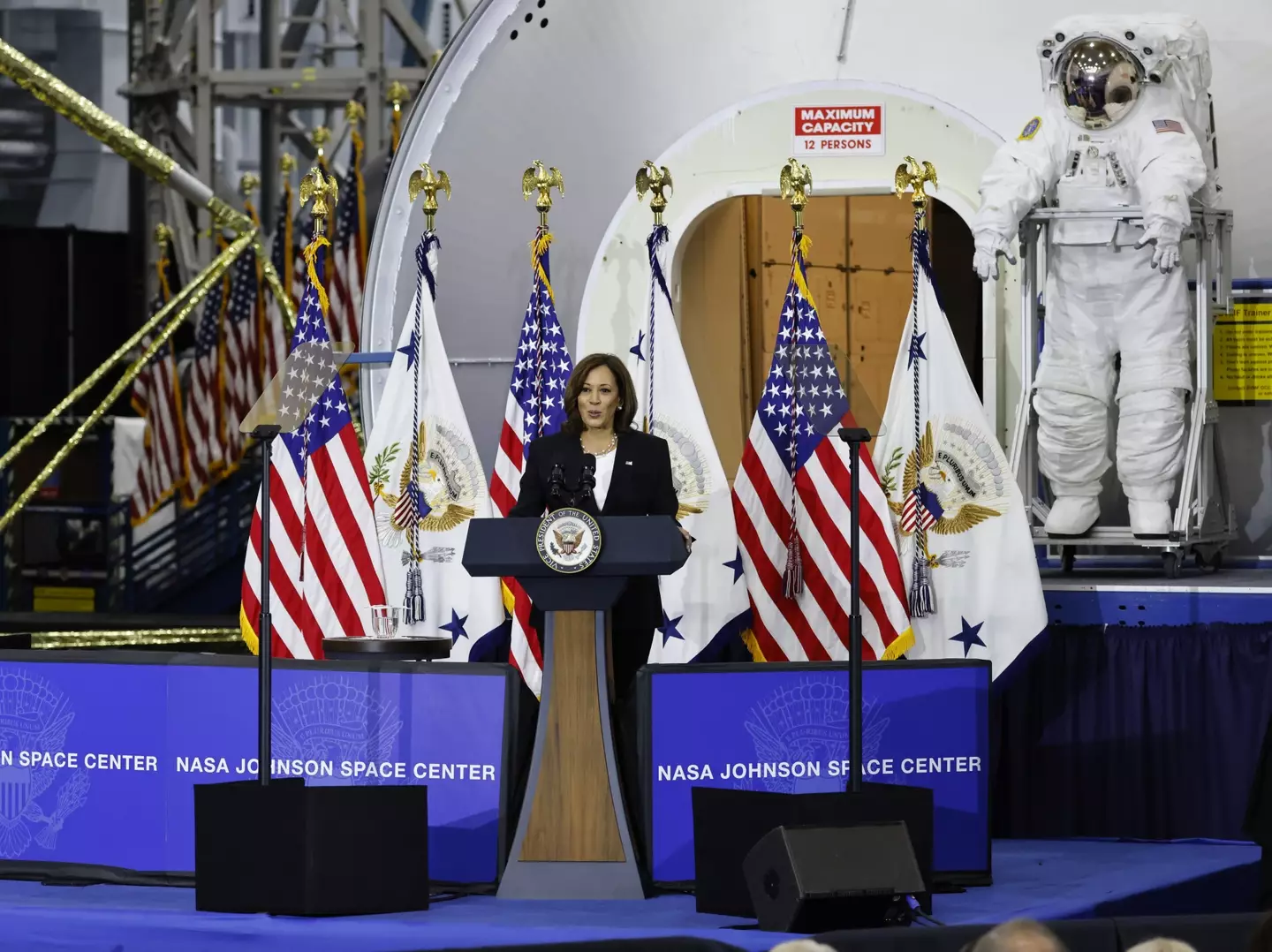

Kamala Harris oversaw the National Space Council during the Biden administration (Bloomberg / Contributor / Getty)
Bizarrely, it was the first Trump administration that reestablished the National Space Council in 2017. The National Space Council is overseen by the Vice President, but according to sources close to Reuters, there are questions about whether JD Vance is even interested in heading it up.
The site maintains that Trump aides and SpaceX lobbyist Mat Dunn have dubbed the National Space Council a “waste of time.” Sources say that while Trump’s team contacted NASA about the transition between administrations, the National Space Council and chair Kamala Harris were sidelined. More than this, its staff offices near the White House have reportedly been ‘mostly’ emptied. The final nail in the coffin is the official site leading to a “404 page not found” error.
Under the Biden administration, the National Space Council held one public council meeting every year, with a focus on building international alliances and imposing rules in space.
Musk might not have his own desk at the White House, but according to Reuters, he could be getting what he wants when it comes to the National Space Council.
Musk was spearheading the new Department of Government Efficiency with Vivek Ramaswamy but is now going it alone to try and slash $2 trillion off government spending.
Even though some might see the National Space Council as a waste of time and money, there could be more to the story.
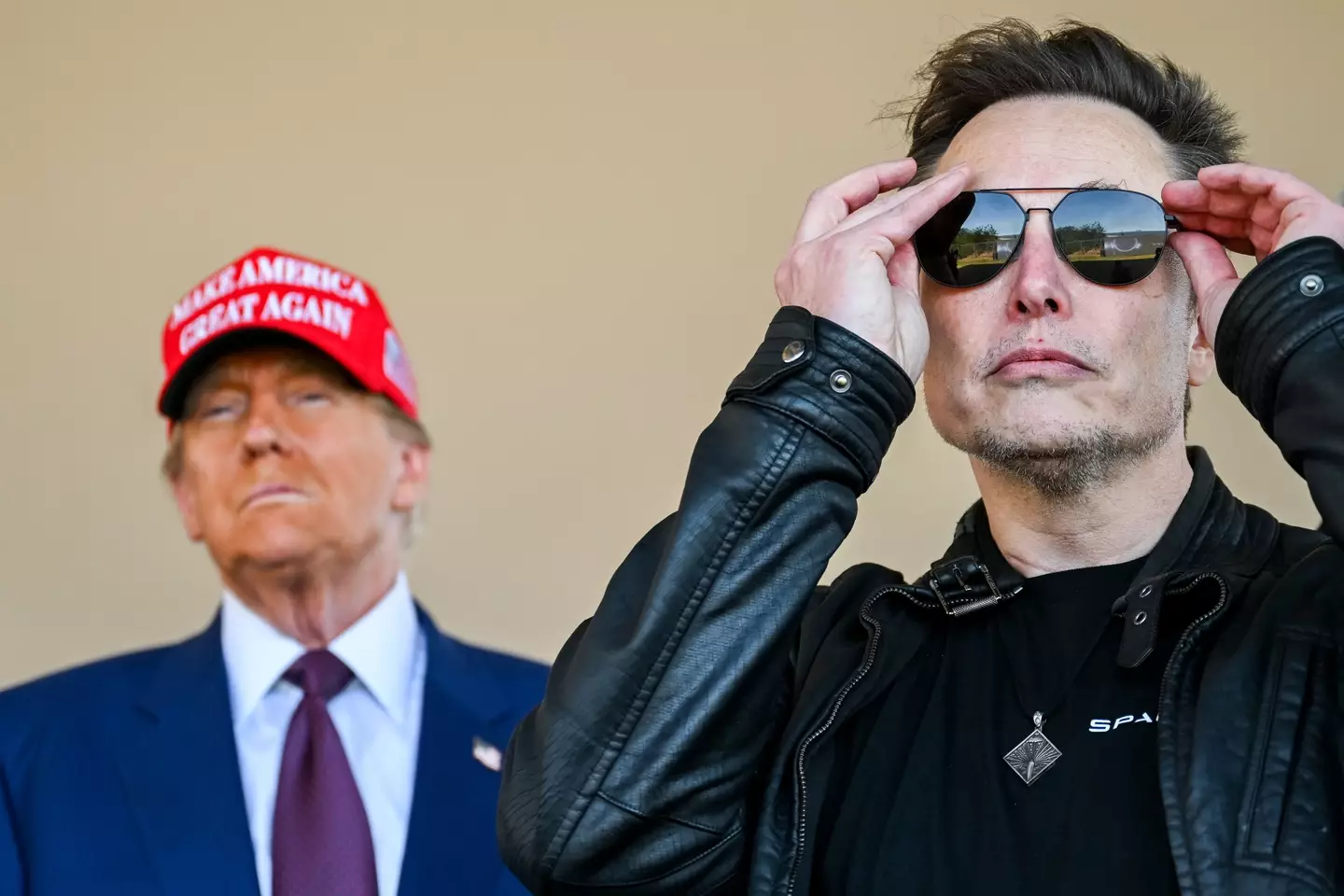

Pressure from Musk’s SpaceX could be behind the National Space Council’s axe (Brandon Bell / Staff / Getty)
In 2023, the National Space Council put forward a proposal that would license private space activities and supervise private missions more closely – which is sure to be a thorn in the side of Musk’s plans for SpaceX dominance.
Remember that Trump already named Musk ally Jared Isaacman as the new head of NASA, while Trump also attended SpaceX’s sixth Starship test launch in November.
In a charged op-ed on SpaceNews, Audrey Schaffer, former space policy chief on Biden’s National Security Council, championed the importance of the National Space Council and wrote: “Without a team dedicated to space policy, the sheer volume of issues White House staff must tackle on a daily basis quickly crowds out any space agenda.”
She maintains that a ‘clear and strong’ space policy is needed quickly or we face slowing “the significant progress made over the past decade in maintaining U.S. leadership in space exploration.”
Featured Image Credit: Chip Somodevilla/Staff / NurPhoto/Contributor / Getty


Elon Musk’s estranged daughter is back to spill the tea again, explaining her upbringing and the fallout of the relationship with her father. Musk has (officially) fathered 13 children, with a fourteenth allegedly from MAGA influencer Ashley St. Clair.
Most of the news seems to be taken up by Elon Musk‘s relationship with X and complaints from Grimes that he ‘parades’ their son around the White House. Still, Musk’s oldest daughter is equally grabbing headlines, namely because she loves to give an insight into her tumultuous childhood and what it was like growing up with the world’s richest man as a father.
Speaking to Hasan Piker in a lengthy conversation on Twitch, Vivian Wilson revealed the ‘bizarre’ class she was forced to attend at Musk’s Ad Astra school.


Wilson doesn’t hold back when discussing her father (TikTok / Vivian Wilson)
Founded in 2014, Ad Astra was formed when Musk pulled five of his children out of school. At the time, the tech billionaire explained: “They weren’t doing the things I thought should be done.”
He employed Joshua Dahn to create the school, teaching his kids, a small group of students, and SpaceX employees.
There were notable absences from Ad Astra, including a lack of grades, foreign language classes, and music lessons, however, Wilson told Piker how she was forced to attend a class that taught you how to use Microsoft Excel while enrolled at this “weird school.”
Referring to Ad Astra as ‘so stupid’, Wilson expanded: “I don’t even know how to describe it it was, like the classes were like fine. They had like four professors so they all taught like a million classes.
“One of our classes was literally just like Excel spreadsheets, which was kind of insane, but whatever, I’m good at Excel now, I guess.”
Piker was visibly shocked at the reveal that Musk made his kids attend classes on how to use spreadsheet software and called it ‘lame’, while Wilson added: “It was actually one of the more fun classes…the bar was low.”
Wilson says she was disappointed that there were no foreign language classes, later learning that she loved them when she attended a different school.
Elsewhere, Piker asked how much Musk actually works, with Wilson saying she doesn’t remember much other than hearing him shout at employees while she was in the car on the way home from school: “He was just yelling at employees in the car while [my siblings and I] all watched, horrified.”
It’s clear that there’s no love lost between Wilson and Musk, and shortly after her 18th birthday, she legally changed her name to drop ‘Musk’ out of it. In one of her most cutting jibes yet, Wilson called the billionaire an “insecure little buffoon.” It comes after she was previously asked whether she’s ‘scared’ of Musk and said: “He’s a pathetic man-child. Why would I feel scared of him? Ohhh, he has so much power. Nah, nah, nah. I don’t give a f**k.”



